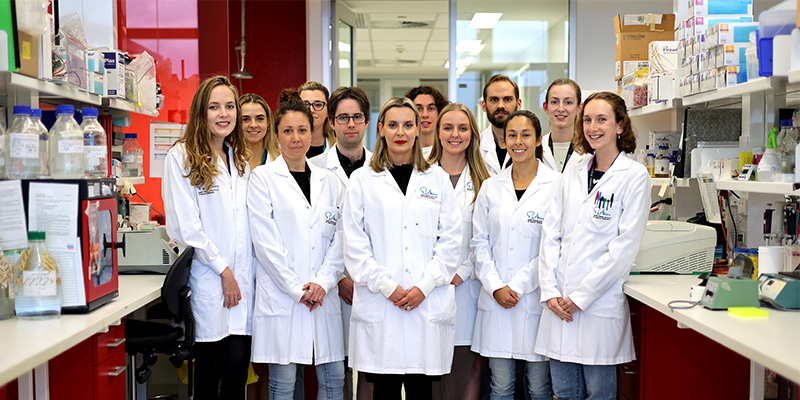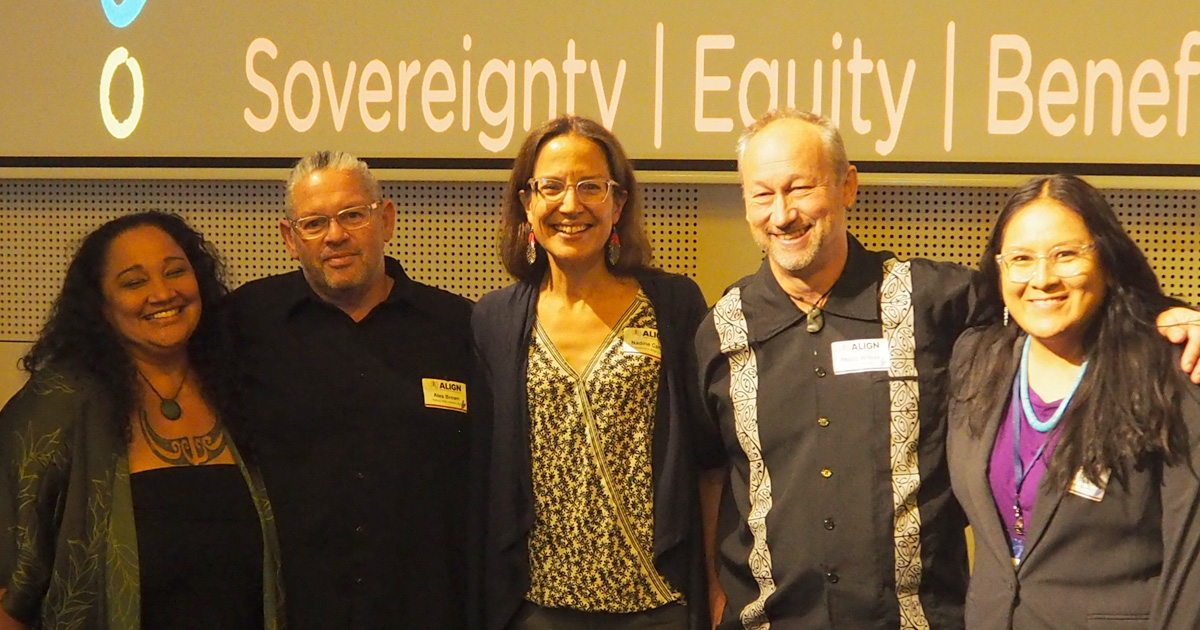Search
News & Events
Prestigious honour for Indigenous Genomics leaderTrailblazing Aboriginal doctor and health researcher Professor Alex Brown has been made a Fellow of the Australian Academy of Technological Sciences and Engineering (ATSE) in recognition of his leadership in ensuring Indigenous peoples are at the forefront of genomics efforts nationally and internationally.

News & Events
National network to significantly improve health outcomes for Indigenous AustraliansA new national network will be established to advance the benefits from Genomic Medicine for Aboriginal and Torres Strait Islander people living in Australia.

News & Events
Prestigious fellowship for pioneering researcherAleksandra Filipovska has been elected a Fellow of the Australian Academy of Health and Medical Sciences.

News & Events
Powerful new network to ensure Indigenous Australians can benefit from genomic medicineA national alliance of the brightest minds in genomic science, academia, policy makers, industry and Indigenous leaders will work to break down barriers to ensure Aboriginal and Torres Strait Islander people can benefit from advances in genomic medicine if they choose.

Scientific discoveries over the past 30 years mean doctors now have a deeper understanding of what causes disease and how those diseases might progress.
Research
Benchmarking Imputed Low Coverage Genomes in a Human Population Genetics ContextOngoing advances in population genomic methodologies have recently enabled the study of millions of loci across hundreds of genomes at a relatively low cost, by leveraging a combination of low-coverage shotgun sequencing and innovative genotype imputation methods. This approach has the potential to provide abundant genotype information at low costs comparable to another widely used cost-effective genotyping approach-that is, SNP panels-while avoiding potential issues related to loci being ascertained in distantly related populations.
Research
Consultation informs strategies for improving the use of functional evidence in variant classificationWhen investigating whether a variant identified by diagnostic genetic testing is causal for disease, applied genetics professionals evaluate all available evidence to assign a clinical classification. Functional assays of higher and higher throughput are increasingly being generated and, when appropriate, can provide strong functional evidence for or against pathogenicity in variant classification. Despite functional assay data representing unprecedented value for genomic diagnostics, challenges remain around the application of functional evidence in variant curation.
Research
TANGO2 binds crystallin alpha B and its loss causes desminopathyMutations in the TANGO2 gene cause an autosomal recessive disorder characterised by developmental delay, stress-induced episodic rhabdomyolysis, and cardiac arrhythmias along with severe metabolic crises. Although TANGO2 mutations result in a well characterised disease pathology, the function of TANGO2 is still unknown.
Research
Deciphering IGH rearrangement complexity and detection strategies in acute lymphoblastic leukaemiaAcute lymphoblastic leukaemia is a highly heterogeneous malignancy characterised by various genomic alterations that influence disease progression and therapeutic outcomes. Gene fusions involving the immunoglobulin heavy chain gene represent a complex and diverse category.
Research
Leaving no patient behind! Expert recommendation in the use of innovative technologies for diagnosing rare diseasesGenetic diagnosis plays a crucial role in rare diseases, particularly with the increasing availability of emerging and accessible treatments. The International Rare Diseases Research Consortium (IRDiRC) has set its primary goal as: "Ensuring that all patients who present with a suspected rare disease receive a diagnosis within one year if their disorder is documented in the medical literature".
